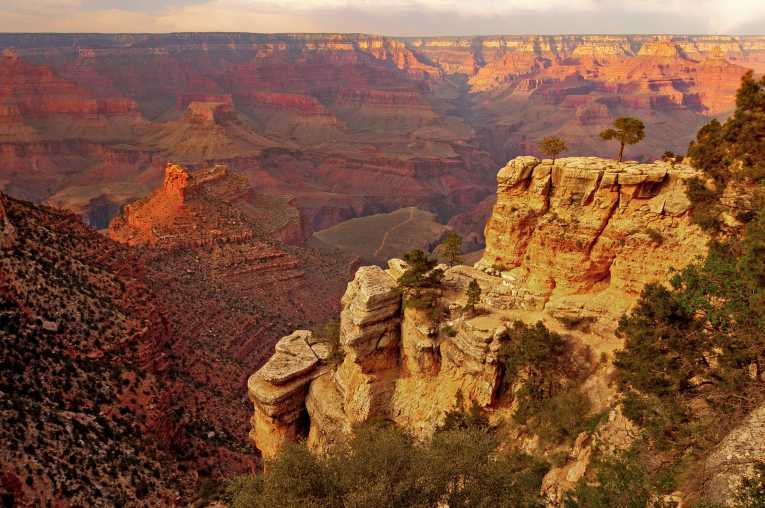Republicans and Democrats found themselves on partisan lines at a heated debate on the Hill this week as the industrialisation of the Grand Canyon was put on the table.
The debate centred around the future of uranium mining in Arizona. Democrats put forward an amendment to the 2012 Internal Environment Appropriations Bill that would have stripped a rider placing a 20 year moratorium on any uranium mining near the national park.
Just last month, Interior Secretary Ken Salazer extended a two year ban on any new mining claims within one million acres of the Grand Canyon. His preferred option was a 20 year moratorium but the amendment failed 23 - 26. He wants more time for his department to analyse the potential impact on the state's most treasured asset.
At the heart of the discussion is the battle over the true impact of uranium mining on the national park. On one side its economic benefits, on the other the potential to damage a tourist haven and contaminate water.
Democrat Ed Pastor from Phoenix told the debate "Let's not screw up the Grand Canyon" citing the potential environmental impact of increased mining activity. The Park generates $690 million in tourism spend for the US, with over 12,000 full-time employees.
His concerns were echoed by the Metropolitan Water District and Southern Nevada Water Authority who, in a joint letter to the Interior cited the Central Arizona project which, via a 336 mile aqueduct, provides water for 80% of the state's residents. They raised concerns of possible water pollution from mining activities.
"Protecting the Colorado River's water quality is of paramount importance and, as such, the potential for degradation of Colorado River water quality through increased uranium mining in the Grand Canyon area is an issue of concern to the Partnership."
But for Arizona Republican Jeff Flake, the issue should be up to Congress, not the Secretary for the Interior. He argues they have been unable to find a reason to stop uranium mining and a statement on his website reads "Uranium mining outside of Grand Canyon National Park can create jobs and stimulate the economy in northern Arizona without jeopardizing the splendour and natural beauty within the park. That's why the proposed moratorium on new uranium claims is opposed by state and local officials in Arizona."
America imports 90% of its uranium, the main source being Russia. Republicans argue opening up the land to increase domestic production is good for both the economy and national security.
The decision now goes to the House where it could be debated before the August recess.
Top Image: Grand canyon National Park, Arizona © csourav










